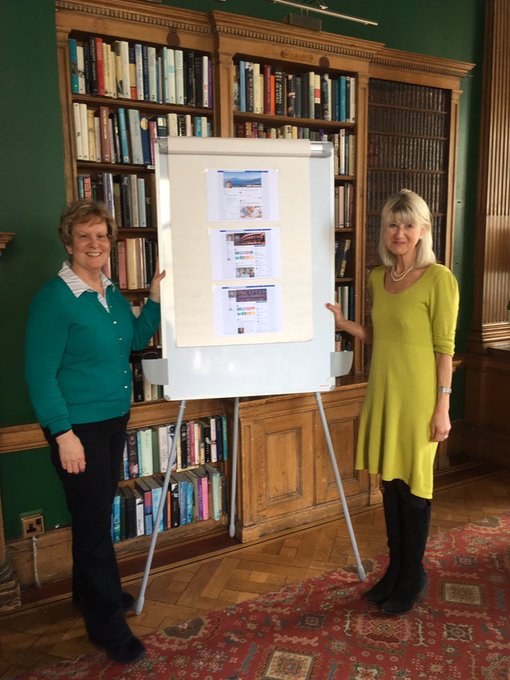 With Jane Corry of Freelance Media Group in the library at the University Women’s Club Yesterday, I went to speak to the Freelance Media Group about social media, specifically Twitter, Facebook and Instagram. Of course, we ran out of time; this is a massive subject. I gave everybody a six-side handout to take away in case I’d bamboozled them during the hour and a half workshop. 😉
Rather than be completely techie, we did an assessment of where everybody was and which media of the three we used and how we used it. Then we looked at fear/reluctance to use social media and some of the ways of safeguarding themselves. The user experience, or ‘UX’ if you want the technical term, is one of the most important aspects of participating in anything online.
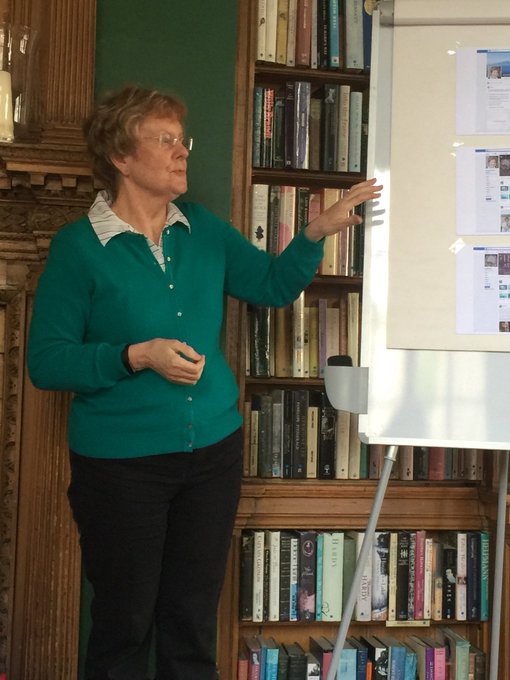 In full flow! Privacy concerns were high as was the worry that nobody would be interested in what they had to say. Everybody has something interesting to say – we re unique as human beings, each one of us with a different story, so I urged them to go ahead and experiment.
Of course, you can play with privacy settings to restrict who sees what. But whatever the settings, people should remember that social media is 98% public and they should think hard how much of themselves they put on social media.
The audience was lively, the questions sensible and the whole meeting energising. Plus I sold a few books! People were very kind and said they’d enjoyed it. I was only too happy to share and If any of my experience was helpful to them, then that was a huge bonus. I may possibly have tempted a few more to try the social media mines but to do it carefully.
Find out more about the Freelance Media Group.
Alison Morton is the author of Roma Nova thrillers INCEPTIO, PERFIDITAS, SUCCESSIO, AURELIA, INSURRECTIO and RETALIO. CARINA, a novella, is available now. Audiobooks are available for the first four of the series.
Find out more about Roma Nova, its origins, stories and heroines… Get INCEPTIO, the series starter, for FREE when you sign up to Alison’s free monthly email newsletter
If you enjoyed this post, do share it with your friends!Like this:Like Loading...
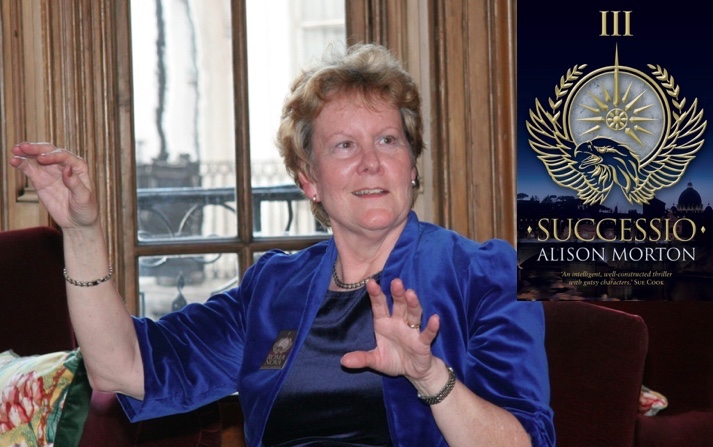 A reviewer wrote about SUCCESSIO, the third Roma Nova novel: A reviewer wrote about SUCCESSIO, the third Roma Nova novel:
“Clearly, Alison Morton is as much a reckless risk-taker as her main character, Carina Mitela. […] after creating one of the most fascinating heroes in my recent memory in book one, and shamefully marginalizing him in book two, the author now proceeds to dismantle the mystique piece by piece, leading us to wonder whether Conradus has not, in fact, gone mad.” Full review
Writing is a risky business, full stop.
Characters are there to be pushed to their limit. They are the creatures of that merciless goddess or god – the writer. They run a risk in existing. They could be dispatched at the whim of their creator. Or they could be set down in a culture or time alien to them, surrounded by a loving family or little green men.
But writing is where we can experiment, try things out of the ordinary, even mix and match ideas and themes that aren’t necessarily found in the average bookshop. We can mix fantasy and crime, romance and horror, history and science fiction, Jane Austen and zombies, thriller and science fiction or any combination. I hear one author successfully blended magic with a children’s boarding school…
Genres are ways of categorising books and it used to be fairly simple: romance, historical, crime & thrillers, women’s fiction, science fiction and fantasy, literature and ‘general’. For marketers and sales people, it was a dream. Buyers and readers knew exactly what they were getting. But now it’s open season and cross-genre is all the rage. You can get almost any combination plus there are now age categories, levels of heat in romance, level of violence in crime, historical now nudges the 1970s, time slip and time travel introduce a sci-fi element. Each traditional genre has a range of other genre elements running wild within its framework.
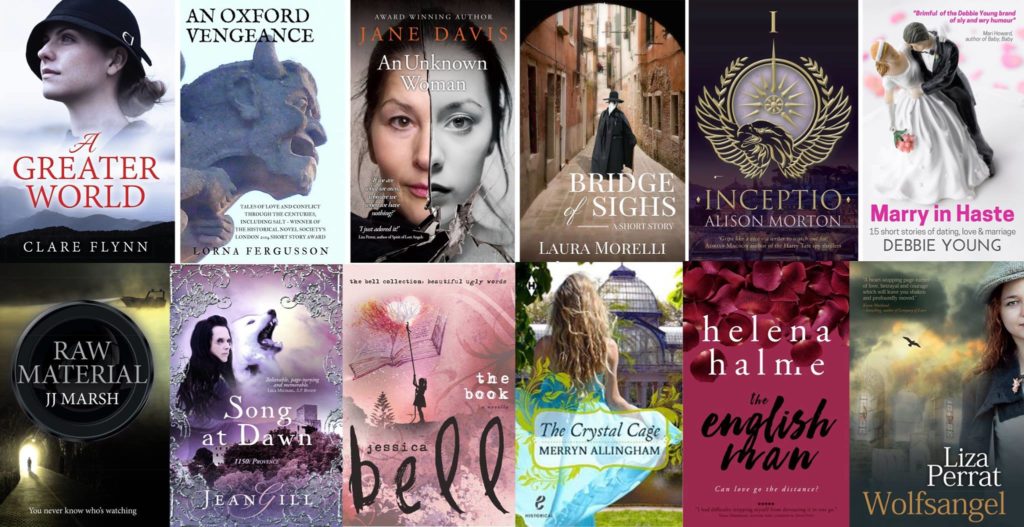
Yes, it’s confusing and its distinctly risky as you never know who will buy your book. Traditional publishers invest a lot in producing and marketing a new book so a dud is a frightening thought. This can make them risk averse. Indie writers who publish their own work are more flexible but still want readers to love (and buy) their work which they’ve sweated over for months and invested their own money in.
The result of all this cross-fertilisation? Lots of niche books which may only appeal to a small percentage of readers – that’s the risk. But the reward for the author is lots of loyal fans and fellow enthusiasts of that niche.
Should an author keep taking that same risk? Well, if they go and write an adventure story with coming of age elements, spies, alternative Roman history, strong women, undercover operations and an epic romance, then that is risk personified.
Do you like a risk in your writing or reading?
Alison Morton is the author of Roma Nova thrillers – INCEPTIO, PERFIDITAS, SUCCESSIO, AURELIA, INSURRECTIO and RETALIO. CARINA, a novella, and ROMA NOVA EXTRA, a collection of short stories, are now available. Audiobooks are available for four of the series. NEXUS, an Aurelia Mitela novella, will be out on 12 September 2019.
Find out more about Roma Nova, its origins, stories and heroines… Download ‘Welcome to Roma Nova’, a FREE eBook, as a thank you gift when you sign up to Alison’s monthly email newsletter. You’ll also be first to know about Roma Nova news and book progress before everybody else, and take part in giveaways.
If you enjoyed this post, do share it with your friends!Like this:Like Loading...

You’d think that once in print, on paper or digitally, a piece of written work was finished. Well, no. Revised editions, additional content and reworking show that change is continuous. In fact, change is all around us; time, seasons, weather, people moving in, moving out, governments, friends, cars, shops, children, relationships. One of the things that is deep-seated in our psyche and which marks us out as human beings is our ability to adapt to change.
Good writing is nothing if not dynamic. Being open about changing our words is the spirit behind good editing. As a new writer, I acted like a mother tigress defending the precious sentences that I’d wrenched out of my soul, but now I know that was being precious in the other sense. Change through editing can give your words more impact, more power and more life.
Ensuring your story reflects and embraces change will resonate strongly with readers. Your plotline may change and that’s quite normal as you develop your narrative. But two areas are often forgotten: setting and character.
 Pembury Kent, 50 years apart: shops, cars, height of trees, zebra to pelican crossing, pub sign Setting changes
The easy one first – setting, which includes physical environment, weather and atmosphere. It’s unlikely the weather stays the same between two scenes if your story is set in the UK. In France, we have longer periods of settled weather, but shadows lengthen and shorten as sunlight strengthens and weakens. Wind, storms, floods, Siberian blasts across plains and blizzards in mountains convey passing time.
Governments rise and fall, politicians itch with change, the most rigid of social groupings are broken, polarised and re-formed. Landscapes are impacted by war, technology and changes in industrial and farming practice and policies.
Seasons change as do plant cycles. I once read a book set in January where ripe grapes hung on vines! No, you should be pruning stick-like remnants then to within an inch of their life. Less romantically, roads are built and repaired (or not), new industrial buildings erected and shops open and close. Who hasn’t gone back to their childhood home and noticed how much it’s changed?
Character changes
I’m taking it for granted that your characters change and/or are changed by your story whether through an experience, an event or an encounter with another character, or all three. A child grows up, a teenager learns a harsh lesson, a retiree suddenly has to cope alone when a partner has gone.
But if your story takes place over a few years, people should age: change in hair colour, skin tone, the need for glasses or hearing aids, illness, childbirth, disease or injury. A sixty-year-old can’t hack it like a forty-year-old who can’t hack it like a twenty-year-old. That confident twenty-year-old who thinks she is the mistress of the universe doesn’t generally have the experience, wisdom or maturity of a sixty-year-old.

People often change their names through adoption, marriage, divorce, widowhood, emigration or a need to hide their past. They also change their style of clothing, or sometimes stay fixed in the fashion or their youth, or what is comfortable.
And people’s needs change, not just in the physical environment like housing or food. After the acquisition phase of life, many people yearn for a simpler, streamlined existence and refocus on experiences and relationships rather than things.
If you write series, some of your characters will soften or harden attitudes, and change needs while retaining and honing their core values. The older Aurelia in my first Roma Nova trilogy is a lot calmer and wiser at 70/77 and 85 years old than she is in the prequel trilogy which takes place in her youth (28 years old) and middle period of her life (45/47 years old).
Great stories can come from change, or lack of it. I suggest you keep the word ‘Change?’ pinned up on somewhere visible on your writing noticeboard and consider it for every scene you write.
Happy writing!
Alison Morton is the author of Roma Nova thrillers – INCEPTIO, CARINA (novella), PERFIDITAS, SUCCESSIO, AURELIA, NEXUS (novella), INSURRECTIO and RETALIO, and ROMA NOVA EXTRA, a collection of short stories. Audiobooks are available for four of the series. Double Identity, a contemporary conspiracy, starts a new series of thrillers.
Find out more about Roma Nova, its origins, stories and heroines and taste world the latest contemporary thriller Double Identity… Download ‘Welcome to Alison Morton’s Thriller Worlds’, a FREE eBook, as a thank you gift when you sign up to Alison’s monthly email newsletter. You’ll also be among the first to know about news and book progress before everybody else, and take part in giveaways.
If you enjoyed this post, do share it with your friends!Like this:Like Loading...
 Some reflections for International Women’s Day… Some reflections for International Women’s Day…
All fictional characters are, er, fictional. We borrow, mine, or lift characteristics from Real Life, but unless we want to get sued, the finally moulded form is a construct. We can gender mirror (I love using that expression – also made up), we can speculate, we can imagine.
Ditto the setting. Even if your thriller story is set in a gritty suburb, a private tropical island, a galaxy far, far away, or grounded by finding a parking space at Waitrose, your book world is fictional. And time… Are you in Ancient Rome, today’s London or 30,000 years in the future? It’s not real time; it’s fictional time.
Opening any book opens you to a new world and releases you from the confines of your place and time, whether as reader or writer. And this is a perfect way into speculating about the “what if”, especially for women. In Real Life, women see fewer aspirational patterns and models than men do. Perhaps this is why there are significantly more women writers and women readers than men; women are seeking an alternative..
 Sian Phillips as Livia in I, Claudius (BBC) In many works, male heroes are outspoken, forthright, taking leadership, leading the action, making decisions; women are secondary – the wife, girlfriend, assistant, the rape victim, the soft contrast to the hero. If they do take a leading role, they are uncomfortable, unhappy or unfulfilled as women or, stereotypically, the “evil one” even in childhood reading such as the Narnia series. And as for Livia as portrayed in I, Claudius – don’t get me started!
Women with power and agency, i.e. who can and do act, seem to be seen as a threat, so they are slotted in as angels or demons, nurses or harlots. What a shame.
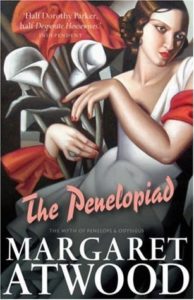 Enter science fiction, fantasy and its subgenres, including alternative history. SFF (for short) has long served as a platform for social criticism and commentary. George Orwell, Ursula Le Guin and Margaret Attwood are obvious examples. But it too has been crammed chock full of reduced or neglected female figures. We’ve been a long time waiting for Wonder Woman to go mainstream. Enter science fiction, fantasy and its subgenres, including alternative history. SFF (for short) has long served as a platform for social criticism and commentary. George Orwell, Ursula Le Guin and Margaret Attwood are obvious examples. But it too has been crammed chock full of reduced or neglected female figures. We’ve been a long time waiting for Wonder Woman to go mainstream.
But an ever increasing number of authors in speculative genres are using their stories to question the central issue of gender roles. Readers travel to places far removed from their current social reality where the givens are not only questioned but tipped upside down. All constraints are down and the result may be welcome or reflect real fears. And once an idea has entered somebody’s head, it can rarely be dislodged. The synapses are firing…
Resolution, loyalty, serving the state are not exclusively male qualities. Caring, empathy, supporting are not exclusively female ones. All genders can express love, hurt, self-doubt but also happiness, acceptance and friendship. Mix all that together and bake in different tins until well done.
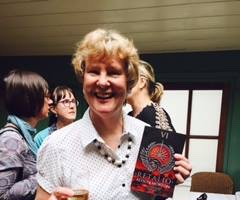 My Roma Nova novels aim to do just that. It took a feminist mother, a Roman nut father, voracious reading of the weird and wonderful, six years in the military and a bad film to trigger this for me, but I remembered everything and once sparked, the Roma Nova world with its courageous and complex heroines has never left my mind. My Roma Nova novels aim to do just that. It took a feminist mother, a Roman nut father, voracious reading of the weird and wonderful, six years in the military and a bad film to trigger this for me, but I remembered everything and once sparked, the Roma Nova world with its courageous and complex heroines has never left my mind.
Engaging with concepts, worlds and characters that seem impossible or unrealistic lets us play with a hidden, secret or yearned for adventure we couldn’t take in real life, not least due to our gender. Science fiction and fantasy novelists can show readers a radically different worldview and cultures through stories of astounding adventures in alternative realms.
And who knows? Perhaps speculative stories, with their heroic women and their derring-do have the potential to provoke change in the real world.
Update 2024: Alison Morton is the author of Roma Nova thrillers – INCEPTIO, CARINA (novella), PERFIDITAS, SUCCESSIO, AURELIA, NEXUS (novella), INSURRECTIO and RETALIO, and ROMA NOVA EXTRA, a collection of short stories. Audiobooks are available for four of the series. Double Identity, a contemporary conspiracy, starts a new series of thrillers. JULIA PRIMA, Roma Nova story set in the late 4th century, starts the Foundation stories. The sequel, EXSILIUM, is now out.
Download ‘Welcome to Alison Morton’s Thriller Worlds’, a FREE eBook, as a thank you gift when you sign up to Alison’s monthly email update. You’ll also be among the first to know about news and book progress before everybody else, and take part in giveaways.
If you enjoyed this post, do share it with your friends!Like this:Like Loading...
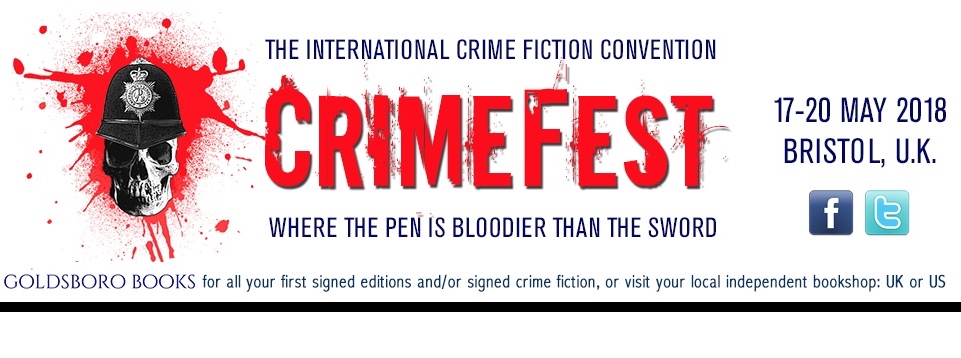
Super exciting news! I’ve been chosen to be a panellist at the prestigious CrimeFest in May! I’ll be on ‘The Indie Alternative’ at 9.30 Sunday 20 May with fellow Alliance of Independent Authors writing friend Debbie Young, and authors Ian Andrew and Karen Millie James, with Zoë Sharp in the chair. Do have a look at the full programme.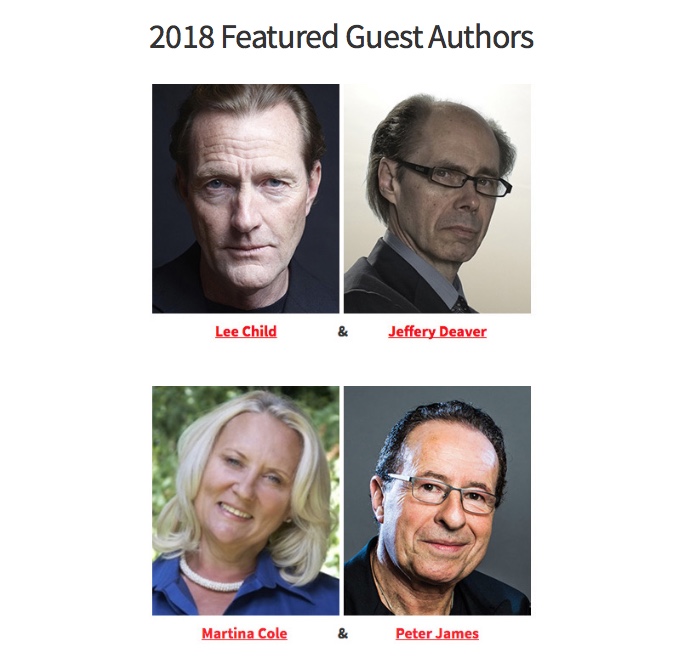
It’s an enormous privilege given the calibre of the other speakers like Lee Child, Martina Cole, Jeffrey Deaver and Peter James *swoon*. When I looked at the attendance list, there are so many writing friends going.
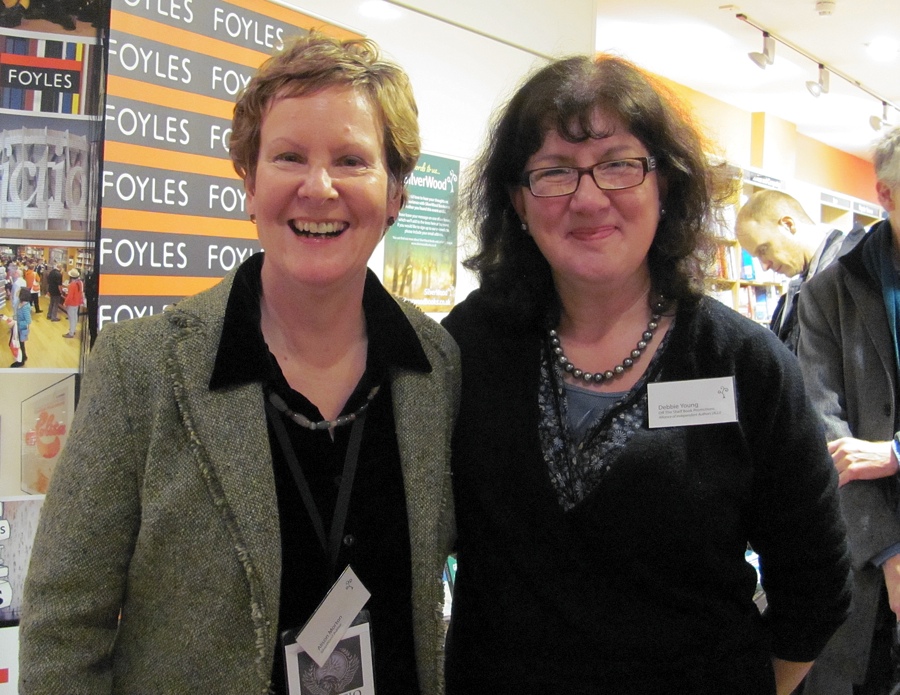 With Debbie Young at a previous event, Foyles in Bristol I’ll be in full participation mode: forensic excursion, full programme, gala dinner, bar attendance, plus catching up with old friends and making new ones.
Roll on May!
http://www.crimefest.com
UPDATE: And this is how it went…
Alison Morton is the author of Roma Nova thrillers INCEPTIO, PERFIDITAS, SUCCESSIO, AURELIA, INSURRECTIO and RETALIO. CARINA, a novella, is available for download now. Audiobooks are available for the first four of the series.
Find out more about Roma Nova, its origins, stories and heroines… Get INCEPTIO, the series starter, for FREE when you sign up to Alison’s free monthly email newsletter
If you enjoyed this post, do share it with your friends!Like this:Like Loading...
|
Subscribe to Blog via Email
Join 368 other subscribers.
Categories
Archive
|
























